From The Terminator To Astro: The Changing Face of Artificial Intelligence Shaping Our World
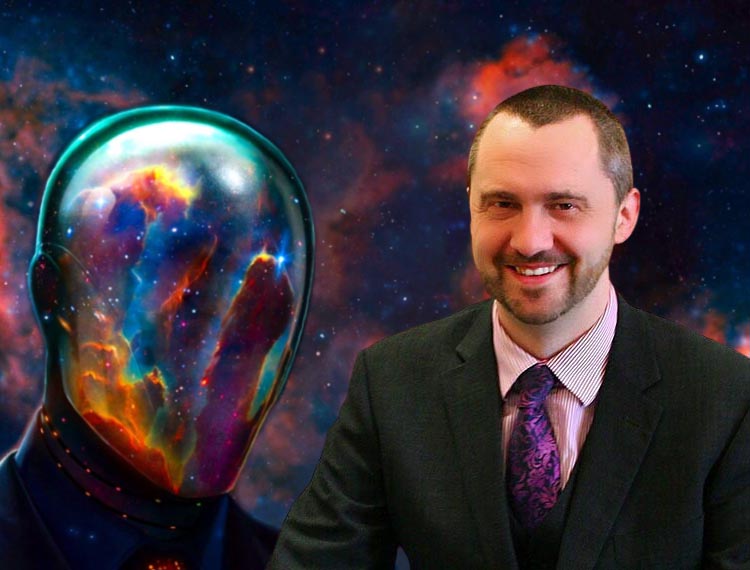
If you were asked to say what technologies you think have had the biggest impact on shaping our world, what would your answers be?
Some examples that would likely feature might include electricity, the telephone, the computer and so on.
Last time I asked students this question the most common response was wifi.
Back in 1995 if you wanted to surf/work/learn on the internet you’d need to be tethered to a network cable (I still see some organisations working like this today).
To anyone under the age of 45 wifi is generally given the same status as any wider utility, with the speed of broadband connectivity now forming a major part of the buying decision when people look at new homes.
For my kids, stable wifi is given broadly the same importance as oxygen. Just as the internet has transformed our world, related innovations will continue to do so.
Whilst some of the rapid acceleration in technology enabled innovation will be of primary interest to those working in computing, such as quantum computing (Google designed a quantum processor called Sycamore that completed a task in 200 seconds that by Google’s estimate would have taken 10,000 years to complete on the world’s fastest supercomputer and yes you did read that correctly) many other innovations that are gaining traction are already starting to shape the world more widely, one of which is artificial intelligence.
Found yourself talking to a piece of technology recently?
It’s likely you have been speaking to Amazon’s Alexa, Siri from Apple or your Google Assistant. Our lives are becoming more digitally connected and whilst there are both good and less good aspects to some of this depending on the context and how you feel about it, it is inevitable.
The contention of this article is that voice enabled artificial intelligence will increasingly help us to achieve more and perhaps most importantly it can help us to spend more time focusing on the things we care about most.
Whilst much discussion is taking place about the potential risks and problems that rapidly emerging technologies like artificial intelligence (AI) can create, and for sure there will be some, my contention is that rather than AI creating an army of killer robots as we might see in popular culture in movies like The Terminator, in reality it is far more likely that our experience of AI will be ever increasing automation through voice enabled personal assistants like the forthcoming Astro from Amazon (your personal robot butler), or more advanced versions of the Google Assistant.
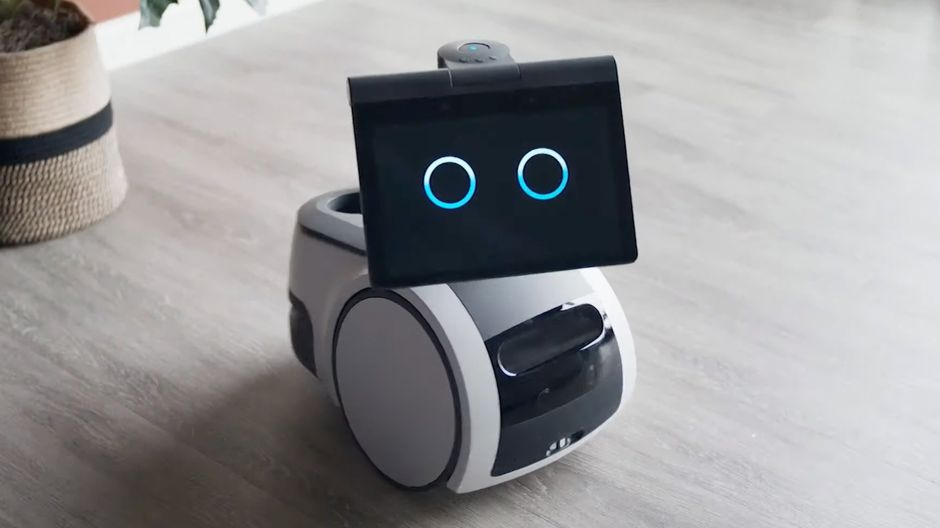
Can Machines Think?
It was Alan Turing back in 1950 who posed this question in his work “Computing Machinery and Intelligence”.
Turing himself is often referred to as the father of computing science and his famous test known as the ‘Turing Test’ based on a human interrogator trying to distinguish between a human and a computer response remains an important part of the history of the field of AI.
Taking a definition from IBM artificial intelligence is a field combining computer science and datasets to enable problem solving also encompassing subsets of AI referred to as machine learning and deep learning. These disciplines combine with AI algorithms to create expert systems that can make predictions or classifications based on the data.
Computer scientist John McCarthy defined AI as “the science and engineering of making intelligent machines, especially intelligent computer programs. It is related to the similar task of using computers to understand human intelligence, but AI does not have to confine itself to methods that are biologically observable”. My interpretation of these definitions is slightly simpler in that AI is a field that leverages the capabilities of computers to copy the problem solving and decision making abilities of humans, and it’s a field that’s becoming very big indeed.
Stanford University has evidenced that more than $40 billion was invested in AI startups in 2020 alone. This investment is backed up by experts such as those at the Centre for Integrative Research in Computing and Learning Sciences (CIRCLS) who believe that over the next decade AI will see huge growth in all aspects of our lives. In their report “AI and the Future of Learning” an analysis of what leaders need to know about AI in education is provided along with how to effectively support teachers in how to make use of it.
Some of the key recommendations for where further research in AI as it relates to how we learn included:
- Investigating AI Design for an expanding range of learning scenarios.
- Developing AI systems that can assist teachers to enhance teaching.
- Accelerating and expanding research on AI for the assessment of learning.
- Accelerating development of human centric responsible AI.
- Development of and strengthening policies and regulations for ethics and equity in AI.
- Involving educators and education policy makers in the development of AI.
- Strengthening the AI education ecosystem.
What’s next?
The popular media will of course maintain a focus on the more sensational possibilities for artificial intelligence, and it’s not without some notable commentators including the late Professor Stephen Hawking who once said “AI is likely to be either the best or worst thing to happen to humanity” and more recently Entrepreneur Elon Musk said “AI doesn’t have to be evil to destroy humanity – if AI has a goal and humanity just happens to come in the way, it will destroy humanity as a matter of course without even thinking about it, no hard feelings’.
Whilst the concerns of Musk and Hawking are shared by many in the short to medium term, AI is quietly going about helping humans to do things they either don’t want to do, or would rather be doing.
AI is helping right now in the following ways:
- Manufacturing robots. Improving quality and efficiency and enabling humans to focus on higher value activities.
- Self driving cars.
- Smart assistants. Saving us time we can spend on more interesting things.
- Proactive healthcare management.
- Financial management.
- Travel and transportation.
- Social media.
Whether it’s self-driving cars or robot doctors, AI is transforming our world at an increasing pace. PwC has estimated that AI could add as much as $15.7 trillion to the global economy by 2030. That’s quite a lot of money even in these times, and 2030 isn’t that far away.
Far from ‘taking a job’, AI is more likely to create new ones, and higher value ones too, assuming people have the education, skills and training to be able to adapt to the changing world around them. It’s worth noting that if your job can be better done by a robot, sooner or later it will be.
Highly standardised tasks with highly defined rules or protocols are likely to be high on the list for automation, but this disruption will also create the environment for new innovation in products and services.
Right now over 1.25 million deaths are caused each year by human error when driving cars. Imagine a world where cars are fully self-driving and it’s possible that figure could be eliminated.
In my home it would certainly reduce my concern over the kids driving if I knew the car was taking care of it.
Know Thyself.
One of the biggest challenges for AI in terms of its capabilities to integrate more directly into our lives is its lack of a sense of self, or self awareness. Companies like Facebook and others are working hard to try to solve this problem as even the robots built by Boston Dynamics learn from external imagery and video.
A more human centric approach to AI will unlock many new possibilities. I’ll personally be delighted when it can tell me where I most likely left my mobile phone.
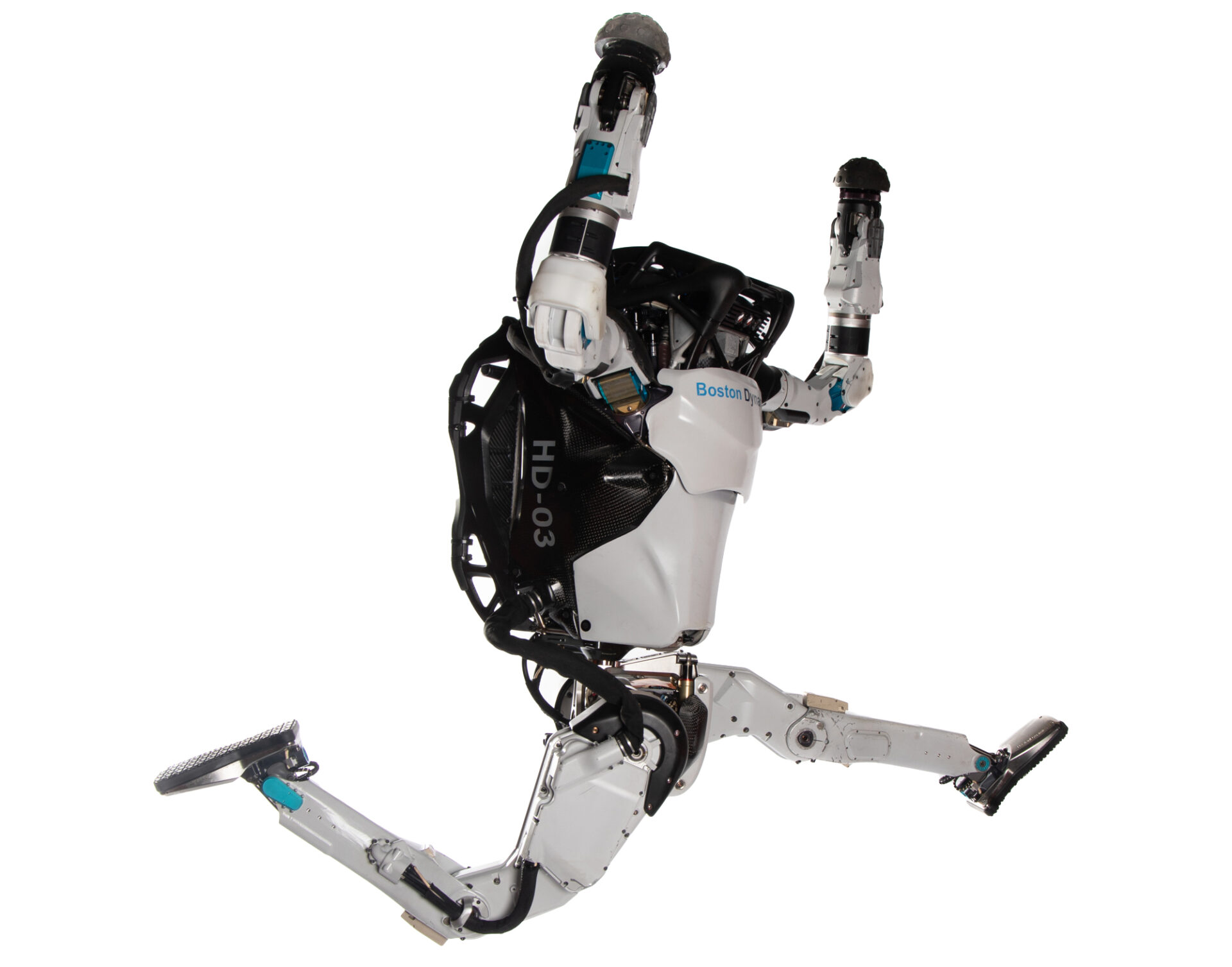
The Cons and Pros.
The PEW Research Centre in the US in its publication “Artificial Intelligence and the Future of Humans”’ provides a nice summary of the most salient strategic concerns and hopes for AI on the road ahead. We won’t cover them all here but in summary the key concerns relate to a fear of loss of control over certain aspects of life, the abuse of data and surveillance, abuse of power by those controlling the systems, job loss, over dependencies and the capacity for AI to create chaos such as war.
On the positive side the researchers note the capabilities of AI to improve collaboration especially in regard to solving some of our biggest global challenges. Researchers also noted the potential for values driven AI to create greater understanding and tolerance and if backed by policies designed to assure a human centric approach.
These views are shared by Sonia Katyal, co-director of the Berkeley Center for Law and Technology and a member of the inaugural U.S. Commerce Department Digital Economy Board of Advisors who commented that, “In 2030, the greatest set of questions will involve how perceptions of AI and their application will influence the trajectory of civil rights in the future. Questions about privacy, speech, the right of assembly and technological construction of personhood will all re-emerge in this new AI context, throwing into question our deepest-held beliefs about equality and opportunity for all. Who will benefit and who will be disadvantaged in this new world depends on how broadly we analyze these questions today, for the future.”
Other experts like Erik Brynjolfsson, Director of the MIT Initiative on the Digital Economy and author of “Machine, Platform, Crowd: Harnessing Our Digital Future,” has commented that, “AI and related technologies have already achieved superhuman performance in many areas, and there is little doubt that their capabilities will improve, probably very significantly, by 2030. … I think it is more likely than not that we will use this power to make the world a better place.
For instance, we can virtually eliminate global poverty, massively reduce disease and provide better education to almost everyone on the planet. We need to work aggressively to make sure technology matches our values. This can and must be done at all levels, from government, to business, to academia, and to individual choices.”
David Wells, the Chief Financial Officer at Netflix, has commented that:
“Technology progression and advancement has always been met with fear and anxiety, giving way to tremendous gains for humankind as we learn to enhance the best of the changes and adapt and alter the worst. Continued networked AI will be no different but the pace of technological change has increased, which is different and requires us to more quickly adapt.
“This pace is different and presents challenges for some human groups and societies that we will need to acknowledge and work through to avoid marginalization and political conflict. But the gains from better education, medical care and crime reduction will be well worth the challenges.”
For me, it’s not about simply doing more. If all that we achieve with AI is to get busier I don’t think the adoption of AI will be welcomed by most. My contention is that it’s not about that, or doing less either, it’s about how we spend our time and why we do what we do.
The single most critical impact AI will have on the human race, in my view, will be how we spend our time. Specifically I believe it will provide us with greater freedom to do the things we want to do, personally and professionally.
As American writer Barutunde Thurston has said “by 2030 we may cram more activities and interactions into our days, but I don’t think that will make our lives better”.
When I listen to educators they rarely say they are looking for more activities to fill their spare time with, and by rarely I mean never. Where AI can perhaps have the biggest impact is on providing greater freedom to focus on what they care about, namely teaching.
The Freedom to Teach.
Borrowing a line from friends at the Merlyn Mind organisation in the US whose mission is to build AI solutions for the people building a better future, their digital assistant for teachers is designed to provide educators with greater freedom to move around the teaching space without needing to be tethered to a computer at a podium whilst orchestrating certain aspects of the lesson plan.
It won’t do everything and it can’t help to locate the missing remote control for the screen or stop your computer needing to update but it can make life a little easier for busy teachers and that in itself has immense value.
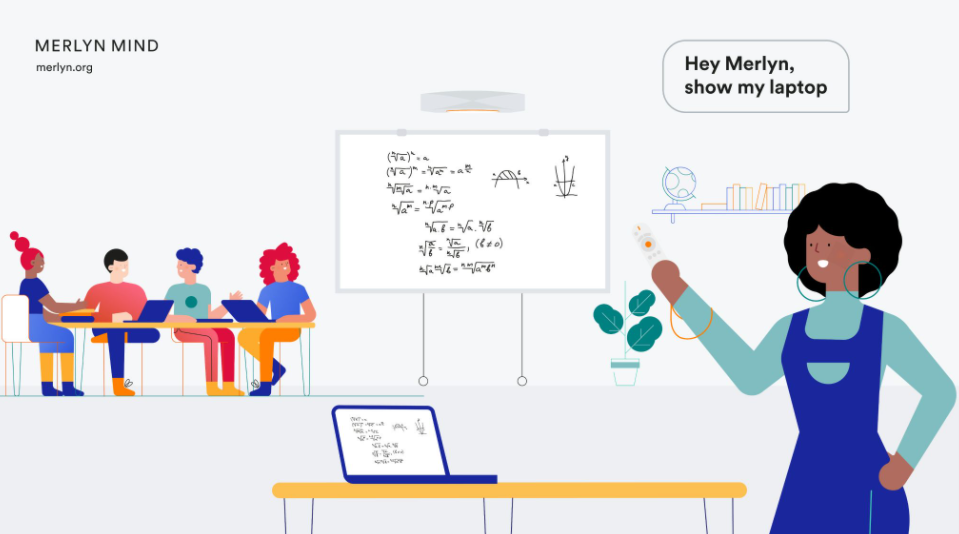
In industry we will see AI playing a greater and more visible role in our lives and over time the view that AI is out to get your job will fall away to be replaced with new emergent industries, products and services and they are likely to be a lot less threatening than popular fiction might suggest.
Just take a look at HP RoboCop on patrol in parks and public spaces in California with live cameras providing footage directly to human officers. Not quite the image conveyed in the original 1987 movie Robocop but it is a glimpse of possible futures.
The Amazon Astro home robot coming soon is rumoured to be marketed as a home security system as it can also link to the Amazon owned Ring doorbell security system so I think it’s reasonable to expect security to feature heavily in the that that AI is marketed.
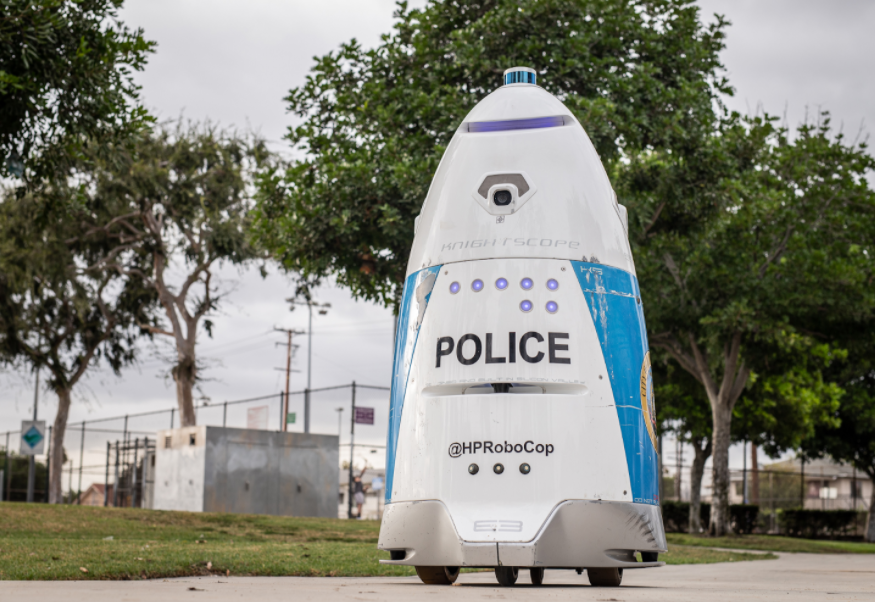
Ultimately the jobs that will be replaced by AI and robotics and wider automation will be those that we don’t want to do because they might be difficult for humans, dangerous, dull or unpleasant.
These are the jobs that robots and AI are most likely to displace but in doing so will create a safer and more humane environment.
For educators AI will increasingly provide greater freedom to focus on higher value human centric aspects to learning whether as a digital teaching assistant or by automating standardised tasks.
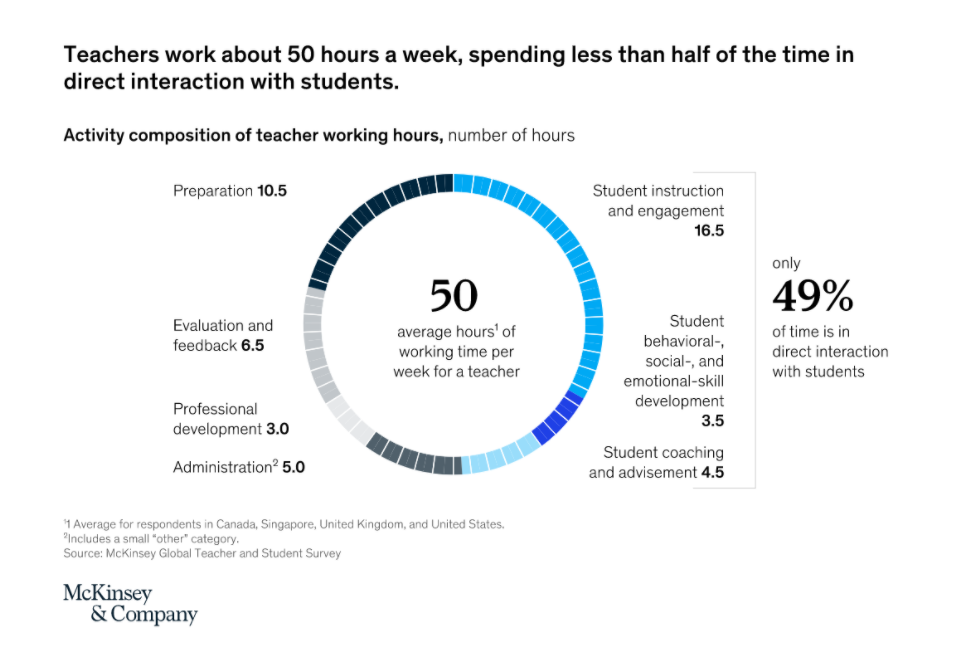
It’s about time.
Back in 2019 there were already 3.25 billion voice assistant devices in use globally and this is expected to increase to more than 8 billion by 2023. My contention is that we will increasingly see this approach shaping how we teach since it’s increasingly how we live and work elsewhere.
This is where the team at Merlyn Mind with the digital assistant for teachers called Symphony Classroom have focused their efforts so teachers can be untethered in the learning environment and it’s already adopted in the UK in places like the leading Independent School Claires Court in Berkshire and the outstanding Coleg Cambria in North Wales.
At some future point we will arrive at a place where voice enabled AI is standard in most teaching spaces not least because it can be a great equalising force for good in widening access and participation such as for those with mobility difficulties.
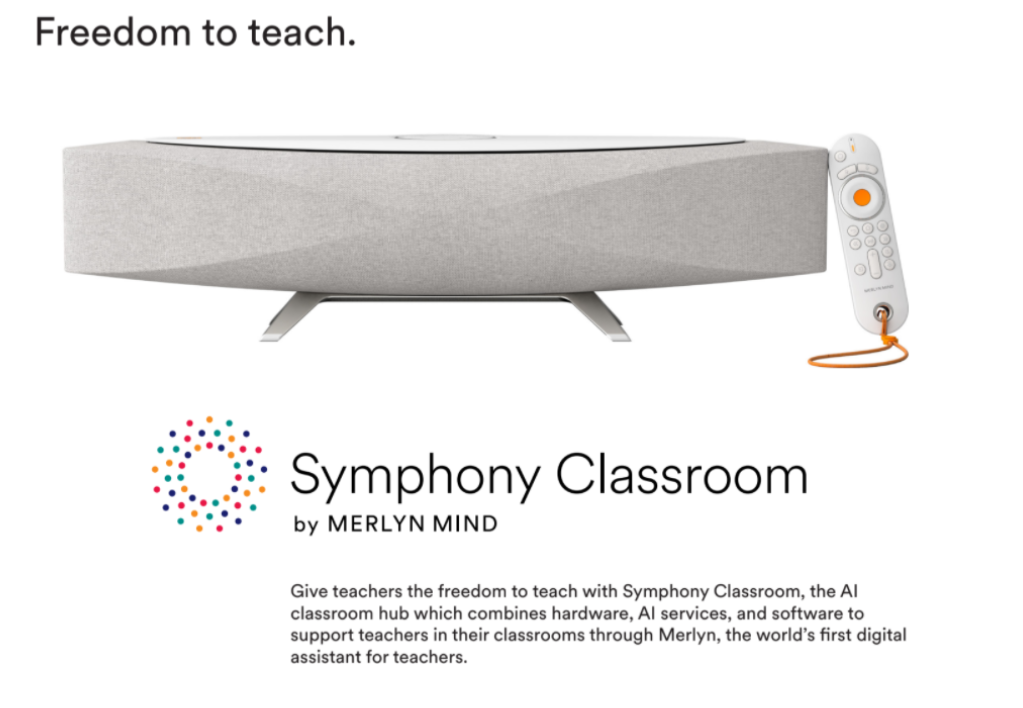 So whilst we are waiting for the killer robots to arrive I believe we will see AI enabling greater personalisation in learning journeys including dedicated personal assistance with tasks. It’s also reasonable to expect AI to accelerate learning as a result of both faster response times but also through constant availability.
So whilst we are waiting for the killer robots to arrive I believe we will see AI enabling greater personalisation in learning journeys including dedicated personal assistance with tasks. It’s also reasonable to expect AI to accelerate learning as a result of both faster response times but also through constant availability.
For educators it can free up time by automating tasks, providing rapid analysis of performance and unprecedented insights to tailor progress, as well as providing greater freedom.
Now where did I put my mobile phone?
Jamie Smith, Executive Chairman of C-Learning












Responses